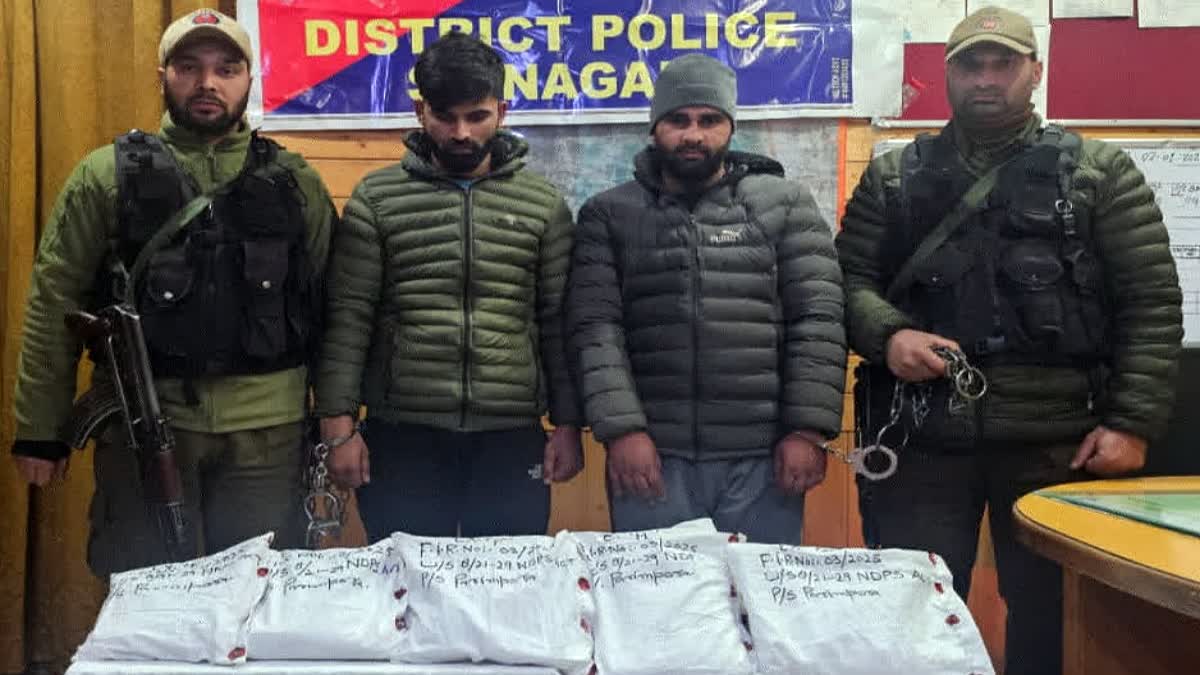Srinagar:On February 3, 2025, the High Court of Jammu & Kashmir and Ladakh upheld the trial court's decision to acquit two men accused of drug trafficking, citing procedural loopholes and contradictions in evidence. The verdict allowed the accused—Farman Ali and Johnson, also known as Raki—to walk free as they had nearly a decade ago when a lower court dismissed the charges against them.
The duo was arrested in Jammu’s Kathua for allegedly carrying 10,000 capsules of banned psychotropic substances on November 5, 2013. The J&K Police claimed they were smuggling the drugs from Punjab to sell them in Kathua. But, when the case came up before a court in Kathua on October 8, 2015, a series of irregularities in the case led to their acquittal.
A decade later, the high court upheld the acquittal, dismissing an appeal filed by the Union Territory Government. The bench comprising Justices Sanjeev Kumar and Mohd Yousuf Wani ruled that the lapses in the investigations rendered the case unreliable.
“Every day we hear about the seizure of narcotic drugs and psychotropic substances, especially from the youth. Shockingly, most factual and genuine cases concerning offences under the NDPS Act end in acquittals, mainly on account of casual, cavalier, unfair, faulty, and non-scientific investigations,” noted the bench.
This is just one of many cases in which charges against drug dealers have fallen in the court. In the last six years, more than 13,186 persons have been arrested under the Narcotic Drugs and Psychotropic Substances (NDPS). Yet, the official data shows only four convictions have been secured, an abysmally low rate of just 0.03 per cent.
Official data presented in the Lok Sabha in the ongoing budget session revealed that the number of arrests in Jammu and Kashmir had steadily risen since 2019, peaking at 3,072 cases in 2023. But, the same year, alongside 2020, drew blank without a single conviction. The remaining four years saw one conviction annually.
The data provided by the Union Minister of State for Finance paints a grim picture of the convictions, giving legal advantages to drug peddlers. This comes despite the J&K Home Department in 2017 directing investigators and prosecutors to professionally discharge their duties while handling NDPS cases. The directive warned that procedural failures were allowing drug offenders to go free, creating a sense of insecurity and eroding public faith in the criminal justice system.
Yet, the situation has barely changed, with legal experts and officials arguing the problems run deeper. They point out the law is stringent against drug trafficking, but the burden of proof is higher, requiring highly professional investigations.
“The process itself becomes punishment,” Soleh Peerzada, an advocate practising at the High Court, told ETV Bharat. “The investigations take time, followed by long judicial trials that span over years. During this time, the accused suffers behind bars.”
A more efficient process, according to him, is swift chargesheet filings and witness testimonies to improve conviction rates. Advocate Imtiyaz Ahmad Rather, who has represented the accused in dozens of NDPS cases in Budgam court, agrees the long trial often weakens the cases. The long trials give an advantage to the accused as witnesses fail in their testimonies as they cannot remember the accurate details, he said.
“This law is laced with technicalities, and a single contradiction in the statement of witnesses erodes the credibility in the eyes of the law,” Rather added.
Another issue, he noted, is that many drug addicts are caught with medicinal opioids in small or intermediate quantities, allowing them some leniency for securing bail.
The NDPS Act classifies drug possession into three categories: small, intermediate, and commercial, with punishment ranging from one year to 10 years. Those caught with commercial quantities face severe punishment and rarely get bail.
